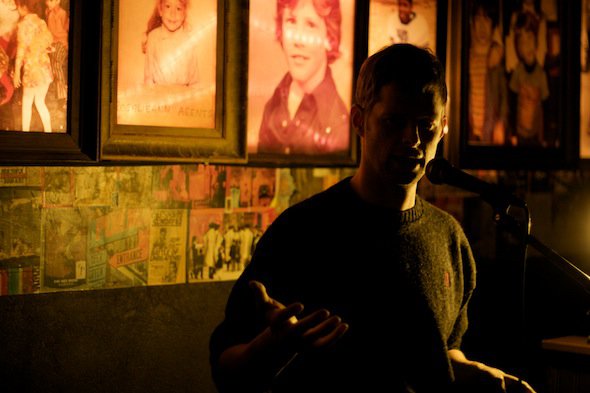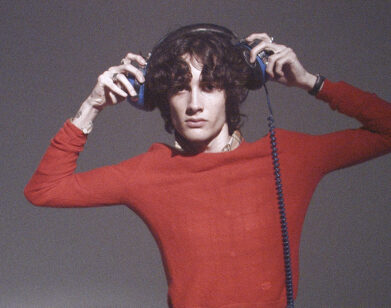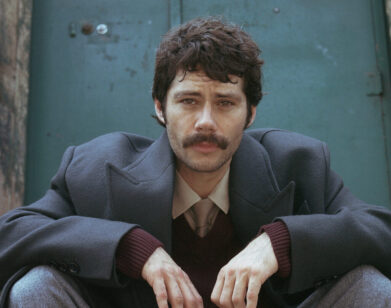Lowboy Author John Wray Saves Virgins, the World

In spite of winning the Whiting Writer’s Award for The Right Hand of Sleep in 2001, publicizing his second novel, Canaan’s Tongue, by embarking on a 600-mile trip down the Mississippi, and being chosen as one of Granta’s Best Young American Novelists in 2007, it was only with the publication of his third novel in 2008, Lowboy (Picador), that John Wray has attracted popular acclaim. Lowboy is the story of a 16-year-old paranoid schizophrenic, Will, who has convinced himself that the only way to save the world from climate change is to lose his virginity; his logic: cool down his overheating body and, in turn, cool down the rapidly warming planet.
The fresh-faced, Brooklyn-based Wray celebrated Lowboy‘s recent paperback release with a reading and party at the Powerhouse Arena in DUMBO. Drawing on both Wray’s teenage experience (“when I was 16 years old I thought the world was going to end if I didn’t lose my virginity”) and more recent issues (“preoccupation with climate change, something that more recently haunted me. I thought by giving this preoccupation of mine to a character, I could exorcise that.”), the book has earned Wray lofty comparisons to the likes of Dostoyevsky and Raymond Chandler—even if it hasn’t exorcised all those demons.
Wray’s success is the result of years spent experimenting with voices and themes in his fiction, and engaging in an eclectic hodgepodge of hobbies and activities. A self-described “menace at karaoke” (Bette Midler once told him that he was “on fire” after hearing him perform an Elvis song at a book party), an ornithologist and fencer, an intrepid explorer of all of New York’s off-the-beaten-path sights, it is likely Wray’s “very weird combination” of interests that affords his writing such attention to detail and infuses his fiction with realistic characters for whom the reader easily feels empathy. While the narrative of Lowboy focuses on a horny, schizophrenic teen, a protagonist that might easily pigeonhole the novel into a rather specific audience, it is also very much a story about the pursuit of human connection and cultivating relationships that make life worth living; according to Wray, the “things that preoccupy Lowboy and the things that frighten Lowboy and the things that Lowboy hopes for are all things that everybody hopes for and is afraid of.”






